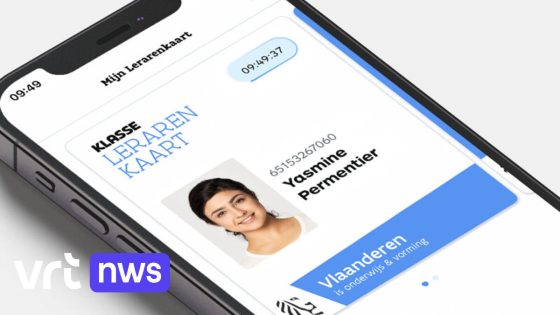Teachers in Belgium are facing a new challenge with the introduction of a digital teacher card. This card, essential for accessing discounts at museums and amusement parks, is now only available through a smartphone app. As of February 24, 2025, this change has sparked controversy among educators who do not use smartphones.
- Teachers are entitled to a teacher card.
- The card offers discounts at various venues.
- Issuance now occurs via smartphone app.
- David Bratzlavsky chooses to live without a smartphone.
- Concerns about stress and privacy with smartphones.
- Feeling discriminated against due to lack of alternatives.
The Digital Teacher Card: A New Challenge for Educators in Belgium
Is it fair to limit access to benefits based on technology? The recent shift to a smartphone-only teacher card has left some educators feeling excluded. David Bratzlavsky, a part-time arts teacher in Ghent, voices his concerns about this policy.
The Impact of Technology on Education Accessibility
The move to digital tools in education can enhance convenience but also creates barriers. Many teachers like David choose not to use smartphones due to concerns over stress and privacy. They argue that having no alternative option for obtaining necessary benefits is unjust.
The Need for Alternatives in Educational Resources
This situation raises important questions about inclusivity. Should all educational resources be accessible regardless of technology preferences? Here are key points from this debate:
- Smartphone dependency may exclude non-users from essential benefits.
- Educators express concerns over increased stress linked to constant connectivity.
- Lack of alternatives could lead to feelings of discrimination among teachers.
- A more inclusive approach could better serve all educators’ needs.
The Role of Government in Providing Equal Access
The government plays a crucial role in ensuring equitable access to resources for all teachers. By considering alternative solutions, they can address the concerns raised by educators like David and promote an inclusive environment where everyone feels valued and supported.
Looking Ahead: What Can Be Done?
This issue invites broader discussions on how educational policies can adapt to diverse needs. Stakeholders must work together to create solutions that respect individual choices while providing equal opportunities for all teachers, regardless of their technological preferences.






























